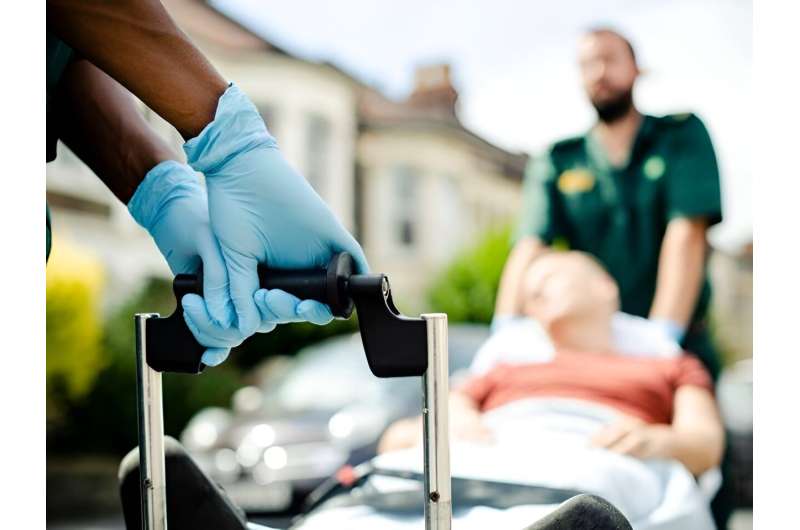Cardiac arrest survival lower at EMS agencies serving minority populations


Risk-standardized survival rates for out-of-hospital cardiac arrest (OHCA) are lower for emergency medical service (EMS) agencies working in Black and Hispanic catchment areas than those in White catchment areas, according to a study published online Sept. 5 in JAMA Internal Medicine.
Anezi I. Uzendu, M.D., from Saint Luke’s Hospital Mid America Heart Institute in Kansas City, Missouri, and colleagues examined whether EMS agencies that work in Black and Hispanic communities have lower survival rates for OHCA than agencies in white communities. The analysis included data from 764 EMS agencies, with 82 having a catchment area with primarily Black and Hispanic populations (258,342 OHCAs, from 2015 through 2019).
The researchers found that the mean risk-standardized survival rates (RSSRs) were 27.5%, with lower survival at EMS agencies with Black and Hispanic catchment areas (25.8% versus 27.7% for agencies with white catchment areas). A disproportionately higher number of EMS agencies with Black and Hispanic catchment areas (32) were in the lowest survival quartile, while a lower number (12) were in the highest survival quartile.
There was no meaningful attenuation of differences in RSSRs between agencies with Black and Hispanic versus white catchment areas when further adjusting for EMS response times, EMS termination of resuscitation rates, and first responder rates of initiating cardiopulmonary resuscitation or applying an automated external defibrillator before EMS arrival (mean RSSRs after adjustment, 25.9 versus 27.7%).
“New approaches are needed to identify barriers to resuscitation care at EMS agencies serving Black and Hispanic communities,” the authors write.
More information:
Anezi I. Uzendu et al, Cardiac Arrest Survival at Emergency Medical Service Agencies in Catchment Areas With Primarily Black and Hispanic Populations, JAMA Internal Medicine (2023). DOI: 10.1001/jamainternmed.2023.4303
Journal information:
JAMA Internal Medicine
Source: Read Full Article